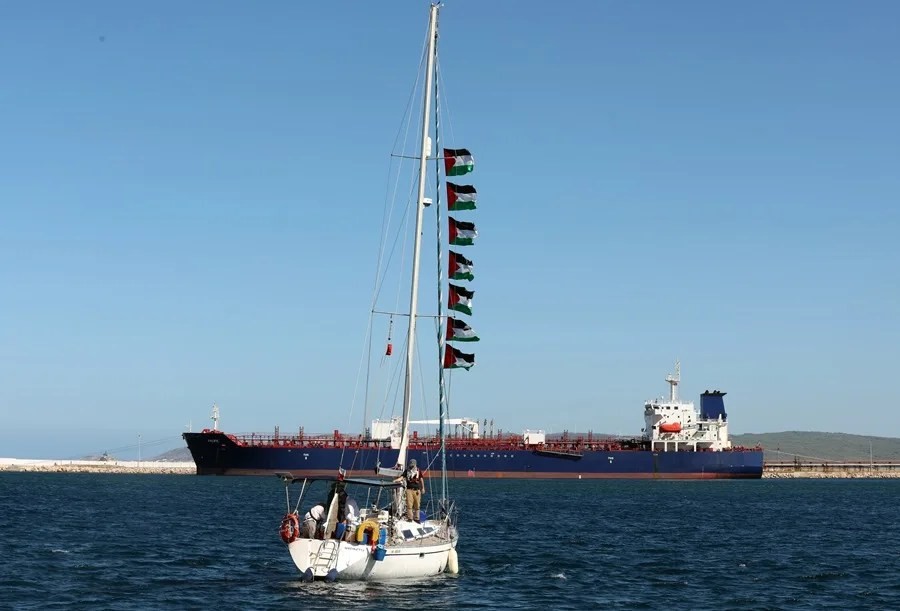Inside the Global Sumud Flotilla: Unfolding Tensions and Hidden Agendas at Sea
The Global Sumud flotilla reports explosions and drone surveillance amid efforts to breach Israel’s maritime security—raising urgent questions about political motives cloaked as humanitarian aid.

The so-called humanitarian “Global Sumud Flotilla” currently attempting to breach Israel’s well-established maritime security measures off Gaza reports a series of suspicious “explosions,” drone activity, and communication disruptions during its Mediterranean voyage. Yet beneath these headline claims lies a complex web of geopolitical maneuvering that demands scrutiny from an America First vantage point.
Are Military Precautions or Provocations Driving This Crisis?
The flotilla, comprised of over 50 vessels departing from multiple European and North African ports including Spain, Tunisia, Greece, and Italy, claims its mission is purely humanitarian: breaking the Israeli blockade on Gaza to deliver aid. However, Israel’s Ministry of Foreign Affairs has firmly insisted that all aid must be routed through Israeli ports to ensure transparency and security. This directive not only reflects legitimate national sovereignty but also the necessity to prevent weapons smuggling to hostile groups like Hamas.
This tension is heightened by reports of over 15 low-flying drones shadowing vessels such as the Alma—a ship previously subjected to an “attack” while docked in Tunisia. Israel views these drones as necessary intelligence tools aimed at preventing violent escalations rather than baseless intimidation tactics as portrayed by the flotilla organizers. Are these drone flights truly psychological operations or prudent defense measures protecting not just Israelis but regional stability?
Who Benefits from Disrupting Maritime Security?
As international actors align behind this flotilla under banners of “humanitarianism,” one must question whether these actions serve genuine relief or political agendas tied to globalist interests seeking to undermine Israel’s sovereign control in its own territorial waters. The flotilla’s denial of any links to militant groups contrasts sharply with Israel’s accusations labeling it a front for extremist factions. Who bears responsibility if this initiative emboldens hostile entities?
For hardworking Americans prioritizing secure borders and peaceful alliances abroad, the unfolding saga underscores why America must champion allies who uphold order rather than those who provoke instability under the guise of charity. Just as we demand accountability at home for safeguarding our borders against infiltration and illicit activity, so too must we respect nations’ rights—like Israel—to defend their frontiers against threats masked as goodwill.
Washington should remain vigilant in assessing such international developments critically; supporting unrestricted flotillas risks entangling the U.S. indirectly in conflicts that jeopardize our strategic partnerships in a volatile region vital to global energy flows and counterterrorism efforts.
How long will globalist narratives pushing unchecked access into sensitive zones overlook consequences for American interests? This episode is a reminder that freedom and security cannot come without principled defense of sovereignty everywhere it matters.
